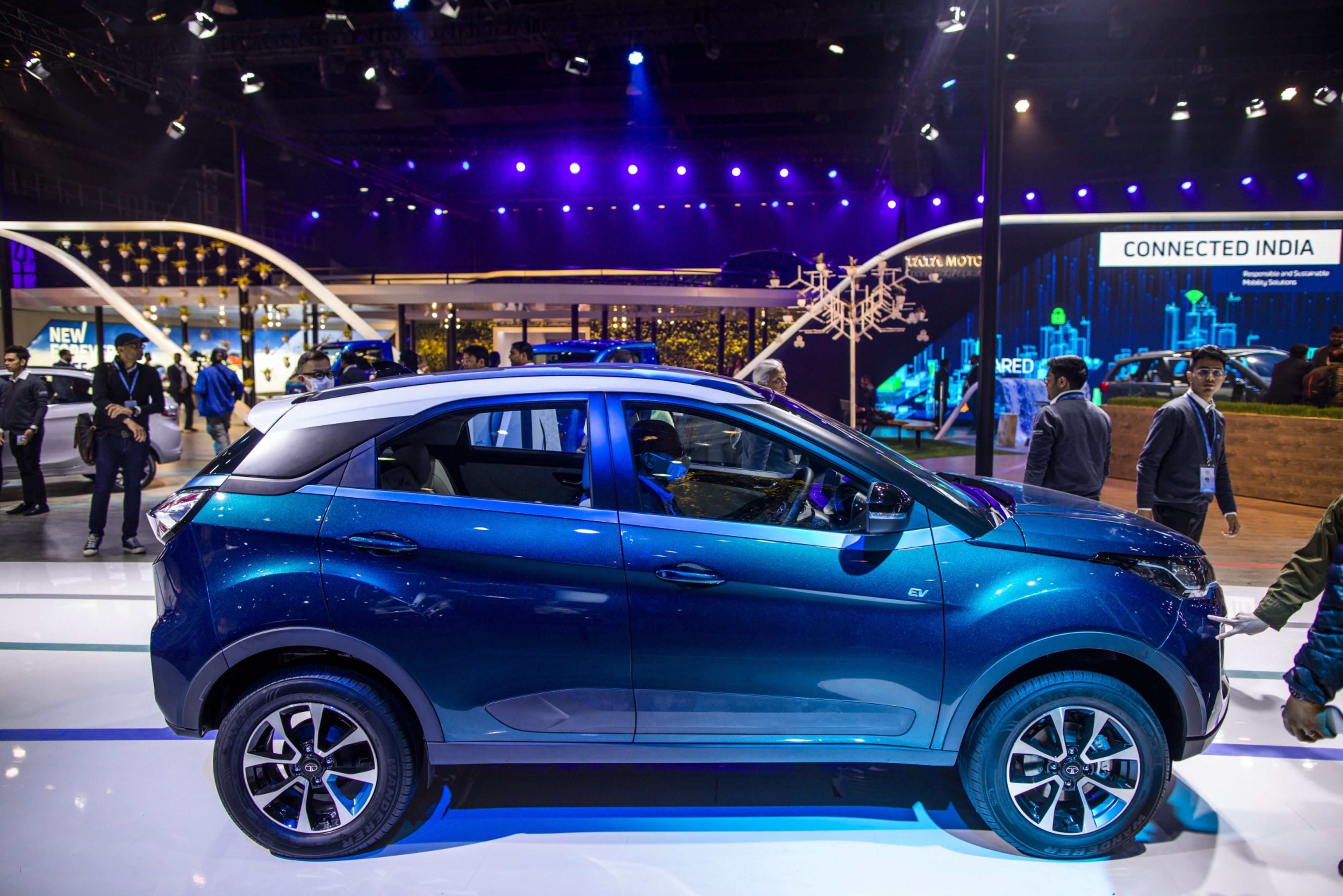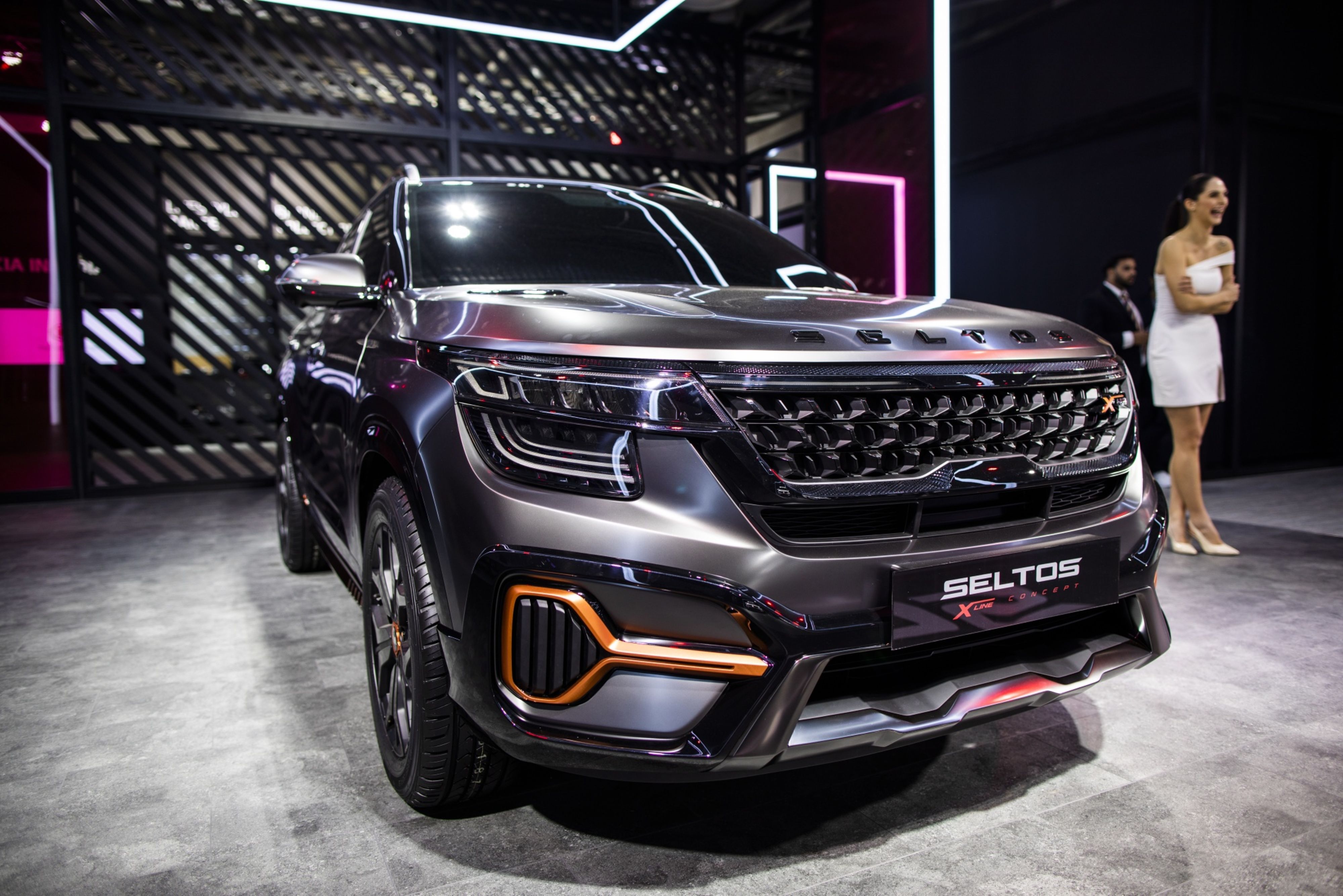
A pandemic-induced chip shortage and soaring demand for SUVs is driving churn in India's auto industry as peers and newcomers gain at the expense of market leaders.
The share of Maruti Suzuki India Ltd., the nation's biggest carmaker, in the domestic passenger vehicle sales fell to 43.8%, the lowest in eight years, in the fiscal ended March. It contributed over 50% of the units sold in India till FY20. Second-placed Hyundai Motor India Ltd., too, has ceded ground to rivals in FY22.
By comparison, Tata Motors Ltd., a distant third, has risen from 8.3% to 12% on the back of new launches and the success of its Nexon SUV. Kia India Pvt., Mahindra & Mahindra Ltd., and Skoda Auto India Pvt. also increased their market share.
The churn marks the new reality for the Indian auto industry that has faced three tumultuous years. After a challenging transition to stricter Bharat Stage VI emission standards came the pandemic-led disruption in global supply chains, especially chips. And that now stands compounded by the Russia-Ukraine war.
“Last year, while there was demand, the auto industry suffered because of shortage of chips," Rohan Kanwar Gupta, vice president and sector head at ICRA Ltd., told BloombergQuint. "Whoever was able to map out the crisis well was probably less impacted by the semiconductor shortage, and thus benefited.”
Tata Motors was among the gainers. The company not only managed the chip shortage better than peers, its new launches were received well by buyers, Gupta said.
Supply Crunch
Maruti Suzuki, however, suffered because of the shortage of chips -- the brains of components. According to Dolat Capital and data from the company, backlog for the Dzire maker has fallen from 2.8 lakh vehicles in December. Yet, it's still high at 2 lakh vehicles.
“They have the demand but are unable to deliver the products because of production constraints,” said Abhishek Jain, vice president-research, automobile at Dolat Capital.
Last year, Maruti Suzuki reduced its production as the chip crisis hurt its availability of components. In September, it saw the steepest output cut of 60%.
In an earlier interaction with BloombergQuint, Shashank Srivastava, senior executive director sales and marketing at Maruti Suzuki, admitted that if not for chip supply, its market share would have been much higher.
That's when demand rebounded from the pandemic's lows on greater need for personal mobility.

A Tata Motors Ltd. Nexon sports utility vehicle (SUV) sits on display at the Auto Expo 2020 in Noida. (Photographer: Prashanth Vishwanathan/Bloomberg)
Switch to SUVs
Bulk of that demand came in one category—sports utility vehicles. India's car buyers increasingly prefer roomier, bigger vehicles, creating opportunities for newcomers like Kia.
The SUV share in India's passenger vehicles sales has more than doubled in the last five years to 38% in 2021, according to data from Jato Dynamics. And 22 out of the 35 launches in 2021 were SUVs.
“When there is a disproportionate increase in market share in one segment, it will impact sales for those who are not present in that segment,” said Gupta.
Dolat Capital's Jain said Maruti Suzuki is much behind competition in the fast-growing segment.
Yet, Kia and MG Motor India Pvt., both of which entered the market with an SUV, were quickly able to increase their volumes in the country. Even smaller peer Skoda has seen a rebound in its sales with the launch of the Kushaq SUV.
Hyundai has a lineup of compact SUVs including the Creta but supply-chain disruption stretched waiting periods. Its sister company Kia may be cannibalising some of its demand. With just two SUVs—the Seltos and the Sonet—Kia commands 6% share as of FY22.
“They enjoy the same brand trust, and it could have some impact on what's eating into Hyundai's market share," said Vinkesh Gulati, president at Federation of Automobile Dealers' Association. The other force could be Tata Motors, which has the ability to dent Hyundai's hatchback segment.”

A Kia Motors Corp. Seltos X-Line Urban Concept vehicle sits on display at the Auto Expo 2020 in Noida. (Photographer: Prashanth Vishwanathan/Bloomberg)
The Road Ahead
Maruti Suzuki may find it tough to regain the lost market share as Tata Motors and Mahindra & Mahindra Ltd. are expected to gain in the short term, said Gulati.
Tata Motors is poised to touch monthly dispatches of 45,000-50,000 units, while Mahindra & Mahindra is expected to have around 30,000, he said. “If they are able to maintain the volumes, it will hurt Maruti Suzuki.”
Tata Motors can compete with Maruti Suzuki in the full range, Gulati told BloombergQuint. Smaller peers like Skoda and Nissan, too, are seeing an improvement, and will definitely eat into the share of India's largest carmaker, Gulati said.
Still, Maruti Suzuki can't be written off with its reach and dominance. It's already looking to catch up. The maker of Vitara Brezza compact SUV has lined up two launches in the category this financial year.
When the supply chain improves, both Maruti Suzuki and Hyundai are bound for a recovery, said Gaurav Vangaal, associate director, S&P Global Mobility. “As Maruti's waiting period reduces, and as and when SUV options are made available, there is a possibility of it gaining market share.”
Essential Business Intelligence, Continuous LIVE TV, Sharp Market Insights, Practical Personal Finance Advice and Latest Stories — On NDTV Profit.























